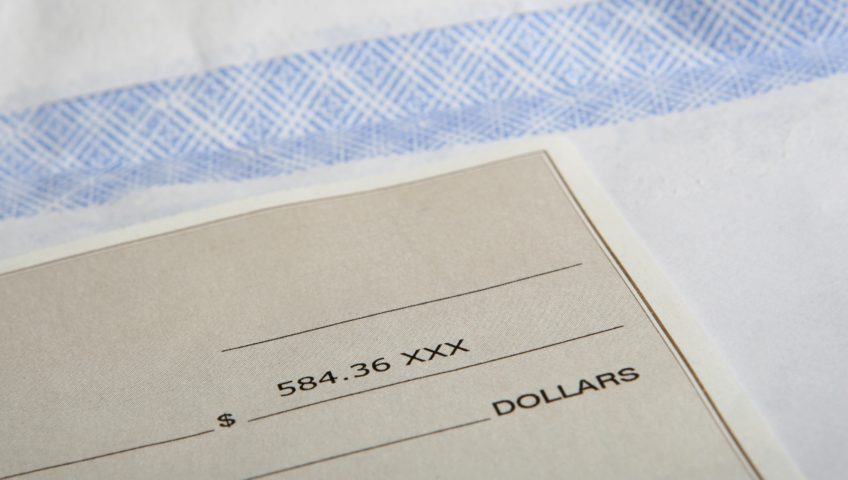If you receive an order for wage garnishment, don’t fret, there are some things you can do to stop it from getting worse — and in some instances — stop it completely in its tracks. So, if you do ever find yourself staring down a wage garnishment order, remember that there are protections in place and exemptions that can go against orders of wage garnishment.
What is Wage Garnishment?
The Department of Labor defines wage garnishment as a legal procedure in which a person’s earnings are required by court order to be withheld by an employer for the payment of a burden such as child support, or taxes.
How Does Wage Garnishment Happen?
Wage garnishment happens when you owe a large amount of taxes for a long while, and now the court has ordered your employer to withhold a specific portion of your paycheck to be sent to pay off your taxes directly. A lot of steps have to be taken from the time back taxes are incurred to receiving a wage garnishment notice. It’s important to act as soon as possible when wage garnishment happens: if you do not fight it, your earnings will be garnished until the burden is paid off or resolved in some other way.
Know Your Rights
You do have rights when it comes to wage garnishment. Being knowledgeable and acting fast are key factors in helping fight against garnishment.
- No garnishment can start without a legal notification, received by you or your employer
- If you believe you do not owe the taxes they claim, or the garnishment displays inaccurate information, you can file a legal dispute
- Some sources of income like veteran benefits are exempt from garnishment, except in rare cases, but can be seized once they are in your bank account
- The Consumer Credit Protection Act prohibits employers from firing employees whose earnings have been subject to garnishment, but that protection goes away if a second or subsequent garnishment is applied
- If you believe for any reason that the wage garnishment was done in error, or it will cause severe financial harm, you can challenge the garnishment
- You may have an opportunity to work out a different agreement to resolve your burden or control how much is taken out of your paycheck
How Much Can Be Actually Garnished?
There are limits to how much of your disposable income the creditors can take from your weekly disposable income based on federal limits.
- For taxes and federal student loans, up to 15% can be garnished to satisfy repayment of back taxes.
- For child support or alimony to a spouse, up to 60% can be garnished. If you are supporting more than one child or spouse, that may go down to 50%, and if you are more than three months late on payments, a penalty of 5% additional income can be taken.
- For other items like credit cards, medical bills, loans, or consumer repayments, there are two options: Either 25% of your weekly income OR the amount by which your income exceeds 30 times the federal minimum wage. So, with minimum wage being $7.25, 30 times that would be $217.50. So anything below that amount, garnishment is not allowed.
How to Stop it
- First, do not go about it alone. Call a tax relief professional to guide you through the process and help negotiate with your creditor. If you can get your creditor to agree to a time-based plan for repayment, this can help alleviate the burden of not being in control of the wage garnishment, hopefully, save you from your employer knowing of the issue, and save you any extra financial burden the wage garnishment will put on you or your family.
- As stated above, you can challenge the garnishment. You do have to act quickly, and in some states, a challenge must be filed as soon as five business days after you receive the garnishment order. The best thing you can do is work with your tax attorney or supportive firm to walk you through challenging the garnishment. There are instances such as information entered incorrectly, or undue harm being put on your finances that will be enough to challenge or deny the wage garnishment order.
- Filing for bankruptcy does not need to be your first choice, nor should it be, but it is an option. If you are buried in back taxes and the wage garnishment would disallow you to afford any basic living expenses, filing for Chapter 7 bankruptcy can offer a fresh start for you, depending on the situation. Chapter 7 bankruptcy only discharges some tax burden, so it’s important to check your situation first to see if filing makes sense for you and/or your family.
When faced with a potential wage garnishment, act fast and read up on your rights, the laws, and how much can actually be taken. If you work closely with the team at Tax Relief USA, and work diligently with the creditors to come to some other terms besides wage garnishment, you and your tax professionals could stop the garnishment before anything is withheld from your paycheck.
